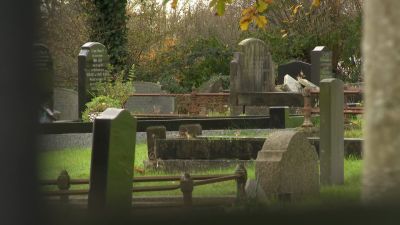Cornwall Council officers storing valuables of people who have died in their 'cars and homes'

Cash and valuables belonging to people who have died in Cornwall have been kept in council officers' houses and cars, it's been revealed.
An audit committee investigating Cornwall Council's provision of public health funerals has heard there is a “high risk” with the service, at a meeting on the 24 November.
It found there was inadequate record keeping, no evidence of cash and valuables being handed to the officer in charge of banking, and a lack of management oversight.
Cornwall Council carries out public health funerals for those who have died and left no next of kin, or whose next of kin, relatives or friends are unable to organise a funeral.
It costs the council £5,560 to arrange such funerals and it has to cover the costs, the majority of which comes from recovering bank details or via the executor of the estate.
Part of this process also sees council staff sort through the deceased person's assets. But the meeting heard parts of this process were "inadequate and inconsistent".
Investigation findings: There is 'no audit trail, no receipts and a lack of oversight'
Holly Sykes, the council's chief internal auditor, told the meeting she had received "limited assurance over the effectiveness of arrangements for" holding public health funerals.
Ms Sykes said a lack of secure storage sites across the council offices meant dead peoples' valuables were being "stored in officers homes and personal vehicles".
This arrangement is "posing a risk to the safeguarding of officers in addition to the security of client assets", she said.
Ms Sykes also added that record keeping regarding items removed was "inadequate and inconsistent".
"There was no audit trail regarding handover of cash and valuables to the officer responsible for banking", she said.
"Receipts were not issued and reconciliations for banking were not undertaken. The audit further identified a lack of management oversight and control of, and involvement in, operational procedures, in particular with regards to banking", Ms Sykes added.
She said there has also been no performance monitoring of the contract with the council’s chosen funeral director, and the formal agreement between the council and the NHS had not been reviewed since its creation in 2017.
Ms Sykes said: “Our opinion is one of high risk due to the weaknesses in the control environment and the potential for reputational risk to the council.
"The council is in a position of trust and has a public duty to ensure beyond doubt that its systems and procedures protect residents’ assets. However, the current systems in operation do not provide this level of assurance.”
But she added that the audit into the council's processes did not find any incidents of fraud or inappropriate behaviour by staff - only “very poor processes”.
These problems arose in part due to an increase in the number of public funerals and the council's move to working from home, the meeting heard.
Cornwall Council will now 'secure the property and leave the money as they found it'
Following the findings, the council has said it will stop retrieving cash and valuables from homes until suitable measures are put in place.
Cornwall Council officers will also now have bodyworn cameras when moving through homes to record any cash or valuables found. The details of these will also be recorded on forms and witnessed by two staff members.
Answering questions from councillors, service director Carol Maclellan said: “We don’t find cash very often, it’s usually details of bank accounts or next of kin. We can secure the property and leave the money as we found it.”
Committee chairman Cllr Armand Toms responded: “If say you found £20,000, a Cartier brooch and a Rolex watch, then you secured the property and went away, and someone broke in, would we be corporately responsible for that?”
He was told the council would not liable for any criminally responsible if the property had been secured.
Credit: Lee Trewhela, Local Democracy Reporting Service